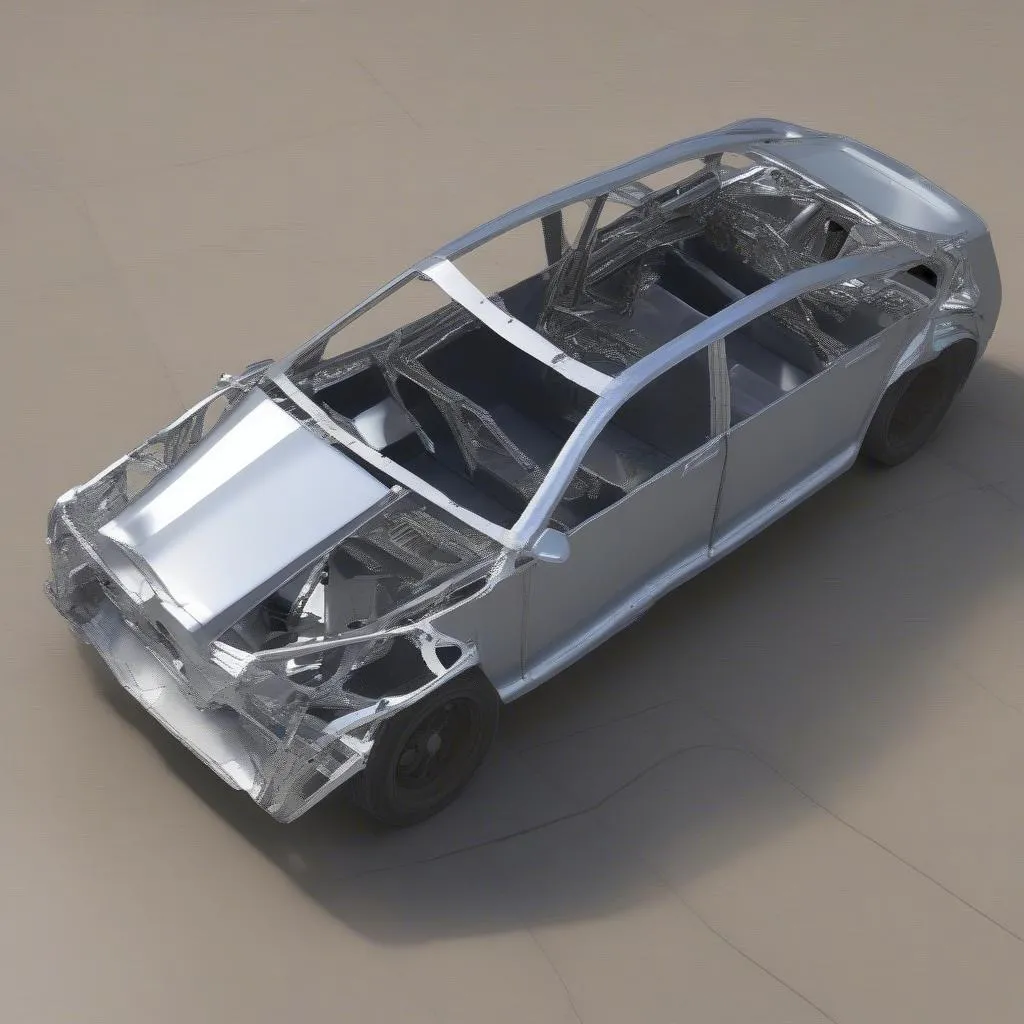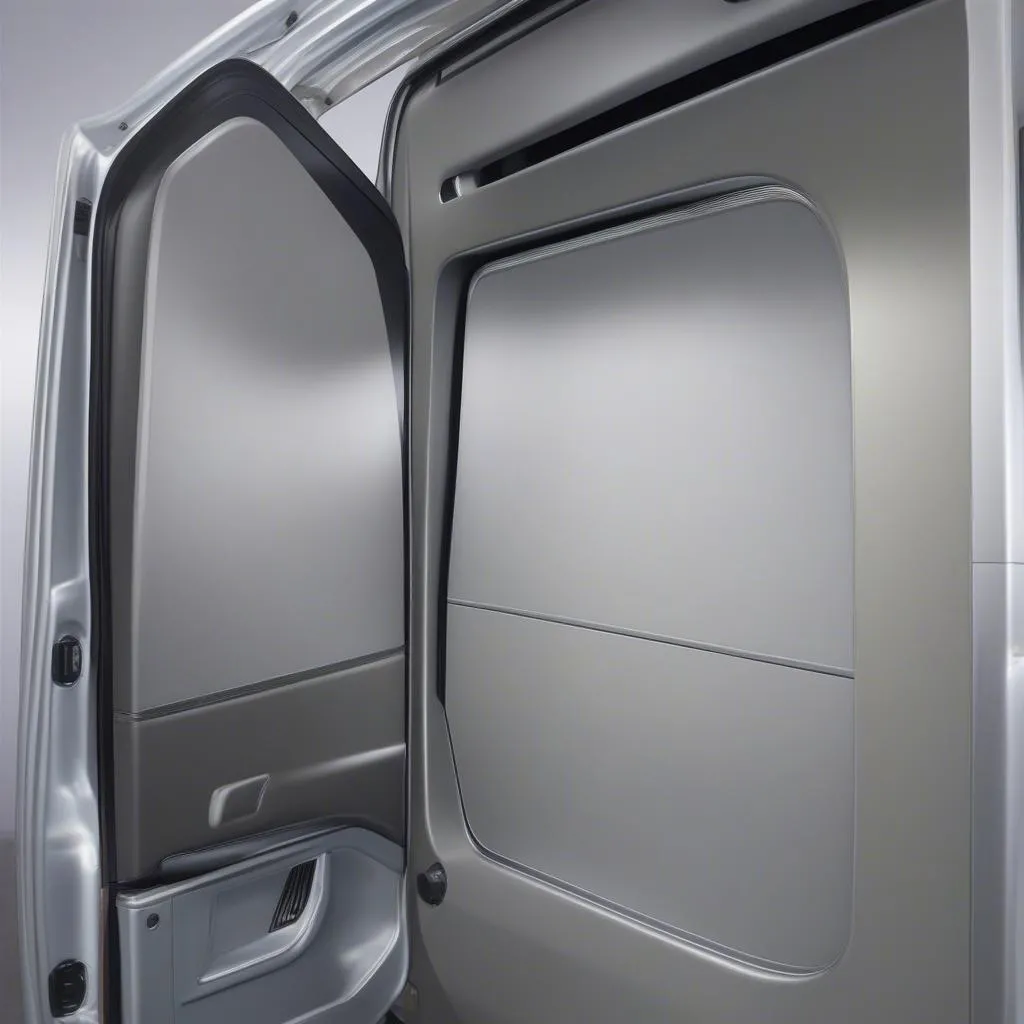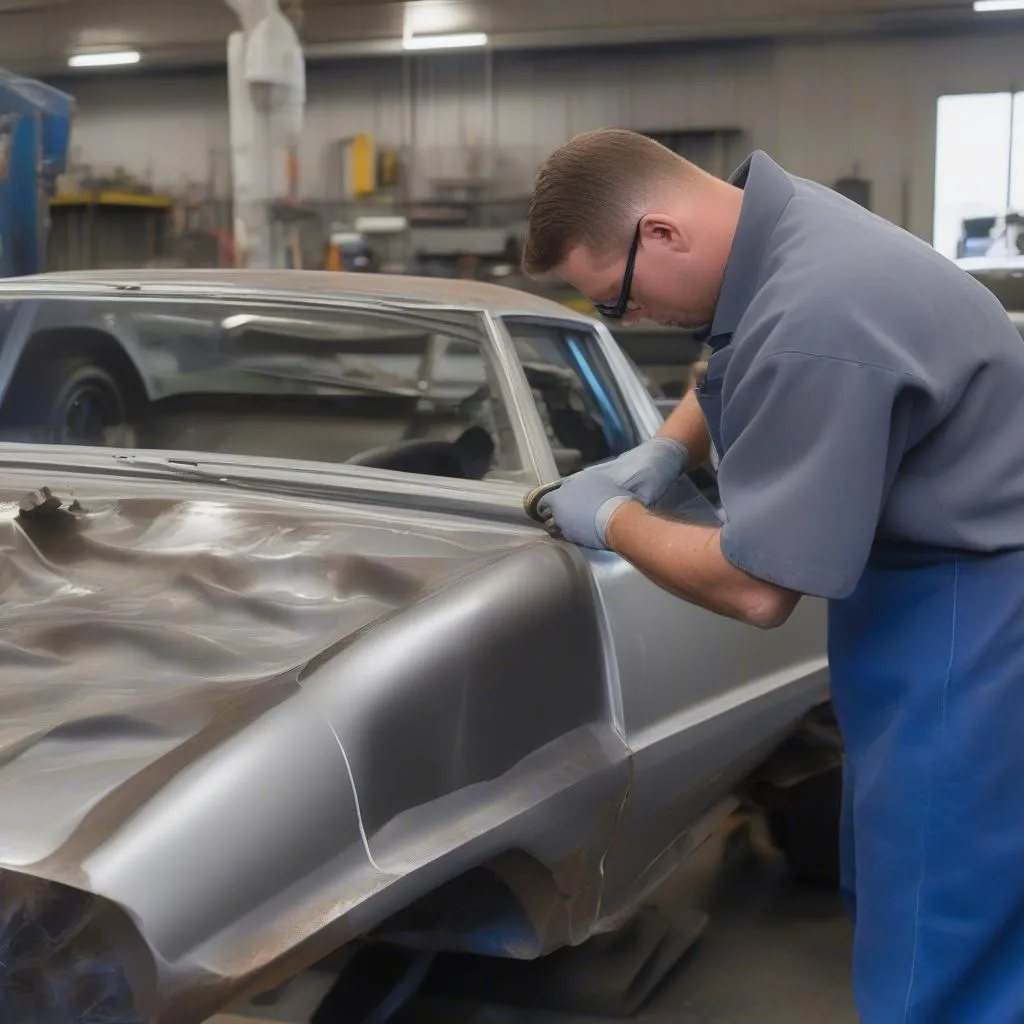Have you ever wondered what goes into making your car’s body? It’s a complex process involving various materials, techniques, and skilled craftsmanship. But one of the fundamental aspects is sheet metal, which forms the foundation of your car’s exterior. In this article, we’ll delve into the world of Car Sheet Metal, exploring its significance, different types, and the importance of choosing the right material for your vehicle.
Why is Car Sheet Metal Important?
Car sheet metal plays a crucial role in defining a vehicle’s form, function, and safety. Think of it as the skeletal structure that provides rigidity, protection, and aesthetic appeal. It’s the metal that you see and interact with on a daily basis, from the doors and hood to the fenders and roof.
Importance of Car Sheet Metal from a Technician’s Perspective
As an automotive technician, I can attest to the importance of understanding sheet metal in car repair. It’s not just about aesthetics; it’s about ensuring structural integrity and passenger safety. When dealing with accidents or rust damage, knowing how to work with sheet metal is essential for restoring a car to its original condition.
Importance of Car Sheet Metal from a Technical Perspective
From a technical standpoint, sheet metal provides strength and rigidity to a car’s body. It’s designed to withstand impacts and distribute force evenly to minimize damage in a collision. The use of different types of sheet metal, such as high-strength steel and aluminum, allows for a balance of strength and weight reduction.
For example, this image shows how car sheet metal can be used to create a strong and durable frame for a vehicle:
 Car sheet metal frame
Car sheet metal frame
Importance of Car Sheet Metal from an Economic Perspective
Choosing the right type of sheet metal is a crucial decision for car manufacturers, as it impacts production costs and fuel efficiency. Lighter materials like aluminum can contribute to a car’s fuel economy, while stronger steel offers greater protection and durability.
Types of Car Sheet Metal
The type of sheet metal used in a car’s construction depends on its intended application, the manufacturer’s design goals, and the overall budget. Here are some common types:
Steel Sheet Metal
Steel is the most widely used material in car manufacturing due to its affordability, strength, and ease of fabrication. It offers excellent resistance to bending and impact, making it ideal for creating the body panels, doors, and chassis. However, steel is susceptible to rust, which can lead to corrosion and structural damage over time.
Aluminum Sheet Metal
Aluminum is gaining popularity in car manufacturing because it’s lighter than steel, offering improved fuel efficiency. It’s also resistant to corrosion, making it ideal for parts exposed to weather elements. However, aluminum is less strong than steel and requires specialized welding techniques.
This image showcases an aluminum car door panel, demonstrating the material’s lightweight yet durable nature:
 Aluminum car door panel
Aluminum car door panel
Carbon Fiber Sheet Metal
Carbon fiber is a high-performance material that is lightweight and incredibly strong. It’s often used in luxury and sports cars to achieve superior handling and performance. However, carbon fiber is significantly more expensive than steel and aluminum, limiting its widespread adoption.
Choosing the Right Car Sheet Metal
The choice of sheet metal depends on the specific car model and its intended use. For example, a high-performance sports car might prioritize lightweight materials like aluminum or carbon fiber for maximum performance. Conversely, a budget-friendly sedan might rely primarily on steel for cost-effectiveness.
Car Sheet Metal Repair
Sometimes, car sheet metal can get damaged due to accidents, rust, or general wear and tear. If you’re facing a sheet metal repair situation, it’s crucial to choose a reputable and experienced automotive body shop.
Here’s a visual example of car sheet metal repair, showcasing the skilled craftsmanship involved in restoring a damaged panel:
 Car sheet metal repair
Car sheet metal repair
FAQs about Car Sheet Metal
Is it possible to replace Car Sheet Metal with a different material?
Yes, it’s possible, but it requires specialized knowledge and expertise. The process involves removing the old sheet metal, fabricating new parts from the desired material, and welding them onto the car’s body. However, this is a complex process and should be done by professionals.
How do I prevent rust on my car’s sheet metal?
Regularly cleaning and waxing your car can help prevent rust. You can also use rust-proofing treatments to protect the metal from moisture and salt damage. If you live in an area with harsh winters, it’s essential to wash your car frequently and apply a rust-proofing solution after each wash.
What are the signs of Car Sheet Metal damage?
Signs of sheet metal damage include dents, scratches, rust, and holes. If you notice any of these issues, it’s important to address them as soon as possible to prevent further damage.
What are the benefits of using aluminum sheet metal in cars?
Aluminum is lighter than steel, which can improve fuel efficiency. It’s also corrosion-resistant, making it ideal for parts exposed to weather elements. However, aluminum is less strong than steel and requires specialized welding techniques.
Related Articles
- Fiberglass Sheets for Cars: Learn more about the use of fiberglass in car body panels.
- Aluminum Car Repair: Explore the challenges and techniques involved in repairing aluminum car parts.
- Car Carbon Fiber Interior: Discover the benefits of using carbon fiber in a car’s interior.
Need Help with Diagnostics?
If you’re facing any issues with your car’s electrical system or require expert assistance with diagnostics, don’t hesitate to contact us! Our team of skilled technicians can help diagnose and repair any problems you encounter.
Reach out to us on WhatsApp at +84767531508 for quick and reliable support 24/7.